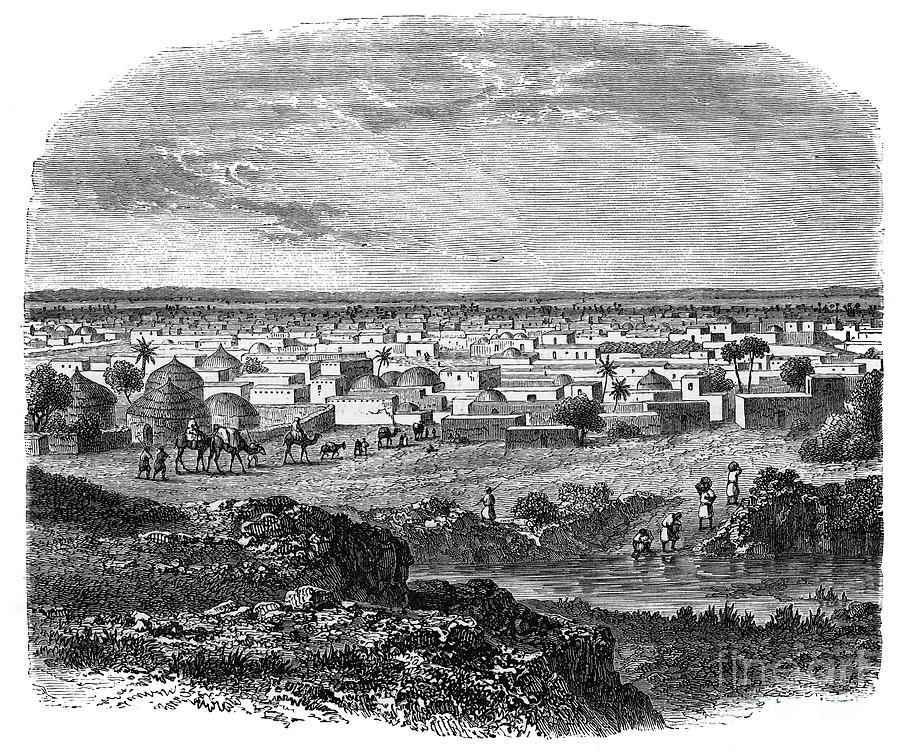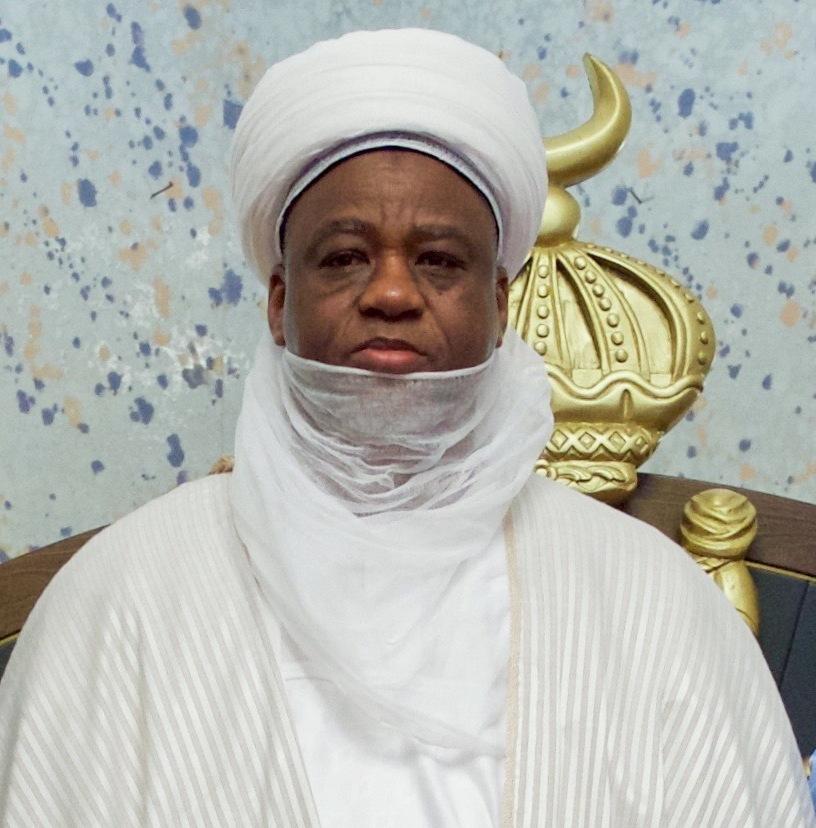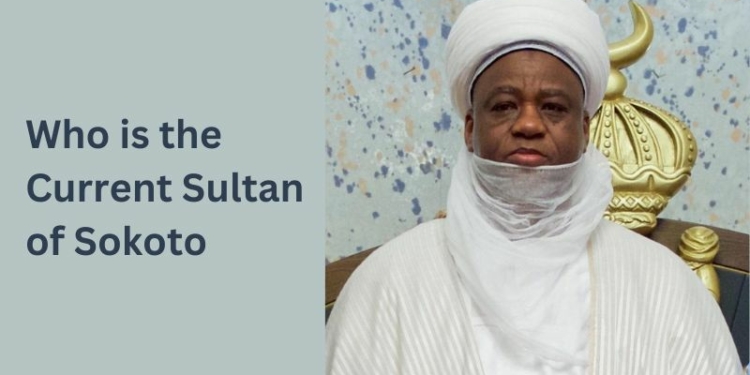Have you ever wondered who holds the title of Sultan of Sokoto today? As the spiritual leader of Nigeria’s over 70 million Muslims and a direct descendant of Sheik Usman Dan Fodio, the Sultan of Sokoto is an influential figure; though his role is now largely ceremonial, he remains an important leader and moral authority for Muslims across Nigeria.
In this article, you learn about the history of the Sokoto Caliphate, who the current Sultan of Sokoto is, the significance of the position, and the list of all Sultans of Sokoto.
Who is a Sultan in Nigeria?
A Sultan is a traditional ruler in northern Nigeria, specifically in the Sokoto Caliphate. The Sultan of Sokoto is the head of the Caliphate, making him the preeminent traditional ruler of the region. The position may also be referred to as the Sokoto Caliph or the “Commander of the Faithful” (Amir-ul-Momineen in Arabic or Lamido Julbe in Fulani).
How is a new Sultan chosen?
The position of the Sultan is hereditary, passed down within the ruling Mallam Muhammadu Fodio dynasty. When a Sultan passes away or abdicates, the kingmakers of the Caliphate meet to choose a new Sultan from among the male relatives of the previous Sultan. The selection process aims to choose a candidate with integrity, leadership qualities, and knowledge of Islam and local customs.
Once selected, the new Sultan’s appointment is announced to the public. He then goes through a coronation ceremony where he is presented with the insignia of the Sultanate, like the turban, sword, and Quran. The Sultan rules until death or abdication, at which point the cycle repeats to choose his successor. The position commands tremendous respect across northern Nigeria.
The History of the Sokoto Caliphate

The Sokoto Caliphate was a powerful 19th-century Islamic caliphate founded by Shehu Usman Dan Fodio. Dan Fodio was a Fulani religious leader and scholar who lived in the Hausa city-state of Gobir. Usman Dan Fodio believed the Hausa rulers were not following true Islamic practices. He wrote pamphlets criticizing their governance and gathered followers.
He launched the jihad in 1804 when he and his followers were exiled from Gobir by King Yunfa, one of his former students. From exile, he declared war against the rulers of Gobir and other Hausa city-states. With a strong army of Fulani and Hausa followers, he conquered Gobir, Sokoto, Kano, Katsina, and the other major city-states and established the Sokoto Caliphate.
Usman dan Fodio’s religious Empire comprised majorly of what is now northern Nigeria, northern Cameroon, and parts of Niger when his army completed their conquests in 1815. Dan Fodio’s jihad also impacted other wars, resulting in the establishment of Islamic states in Senegal, Mali, and Niger. At its peak, the Caliphate included 30 emirates and over 10 million people. The Sultan of Sokoto ruled over all, promoting Islamic law and education.
By the 1890s, Dan Fodio’s Empire had begun to crumble. Internal rivalry resulted in civil conflict, while European colonial troops began to intrude on the Empire’s periphery. By 1903, the French and British colonial soldiers had defeated the Sokoto Caliphate. The Sultan was allowed to remain as a ceremonial ruler under indirect colonial administration by Great Britain, which acquired authority over 80% of the Empire.
The Sokoto Caliphate lasted over 100 years and shaped the political and religious landscape of West Africa. Its legacy of Islamic scholarship and law still influences Nigeria today. By following in the footsteps of the early caliphs, the current Sultan of Sokoto serves as an important moral figure for Nigerian Muslims.
Who is the Current Sultan of Sokoto?

The current Sultan of Sokoto is Alhaji Muhammadu Sa’ad Abubakar III. He took over the position in 2006 following the death of his brother, Alhaji Muhammadu Maccido, who died on ADC Airlines Flight 53. The Sultan of Sokoto is considered the spiritual leader of Nigeria’s 70 million Muslims and the heir to one of West Africa’s most powerful caliphates, the Sokoto Caliphate.
As the Sultan of Sokoto, Alhaji Muhammadu Sa’ad Abubakar III is the preeminent traditional ruler in Northern Nigeria and wields both spiritual and temporal influence over millions of Nigerian Muslims. The Sultan resides in Sokoto, the capital of Sokoto State in northwestern Nigeria. He oversees an influential traditional hierarchy of emirs and district heads across Northern Nigeria. The Sultan of Sokoto’s palace was built in 1808 by Sultan Bello in 1808. The palace is an important cultural landmark and tourist attraction in Sokoto.
The Sultan of Sokoto remains an important figure who wields significant moral authority and influence over Muslims in Nigeria and beyond. He is regarded as a stabilizing force in Nigeria’s complex religious and political landscape.
The Biography and Ascension of Sultan Sa’ad Abubakar III CFR
The current Sultan of Sokoto is Sultan Sa’ad Abubakar III, who ascended to the throne on 2 November 2006, following the death of his brother, Sultan Maccido. Sultan Sa’ad Abubakar is the 19th Sultan of Sokoto, the leader of Nigeria’s Muslim community, and a direct descendant of Sheik Usman Dan Fodio, who founded the Sokoto Caliphate in 1804.
Biography
Sa’adu Abubakar was born on August 24, 1956, in Sokoto. He is the youngest son of the 17th Sultan, Sir Siddiq Abubakar III, who ruled the Sultanate for nearly fifty years. Sa’adu Abubakar attended Barewa College in Zaria before enrolling in the Nigerian Defence Academy’s 18th Regular Course in 1975.
Career
In 1977, Abubakar was commissioned as a Second Lieutenant in the elite Armoured Corps. In the late 1980s, he led a presidential security squad of the Armoured Corps that guarded the then-military dictator, General Ibrahim Babangida. Abubakar also led a battalion of African soldiers in Chad in the early 1980s as part of the Organization of African Unity’s army and served as a military liaison officer with the Economic Community of West African States in the mid-1990s.
In 1993, he was appointed Commanding Officer 241 Recce Battalion, Kaduna. He served as an ECOWAS military liaison officer from 1995 to 1999 and as commanding commander of the 231 Tank Battalion (ECOMOG Operations) in Sierra Leone from 1999 to 2000. He retired as a brigadier general in 2006 after serving as Defence Attaché to Pakistan (also accredited to Iraq, Saudi Arabia, and Afghanistan) from 2003 to 2006.
Ascension
Upon the sudden death of his brother, Sultan Maccido, in 2006, Sa’ad Abubakar was selected as the new Sultan of Sokoto. His selection and subsequent coronation helped to ensure a smooth succession and stability in northern Nigeria.
As Sultan of Sokoto, Sa’ad Abubakar is the spiritual leader of Nigeria’s Muslim community and wields influence over political and religious affairs in the predominantly Muslim north. As Sultan of Sokoto, Abubakar leads the Qadiriyya Sufi order, the most significant Muslim position in Nigeria, and is senior to the Emir of Kano, who leads the Tijaniyya Sufi order. He is also the president-general of the Nigerian Supreme Council for Islamic Affairs (NSCIA) and the chairman of Jama’atu Nasril Islam (Society for the Support of Islam – JNI).
The Role and Responsibilities of the Sultan
As the Sultan of Sokoto, there are many important roles and responsibilities to fulfill. Some of the key ones include:
Religious Leader
The Sultan serves as the religious leader of Nigeria’s Muslim community. He is considered the spiritual head of Nigeria’s Tijaniyya Sufi order. The Sultan appoints clerics and resolves religious disputes.
Cultural Custodian
The Sultan is responsible for preserving and promoting the culture and traditions of the Sokoto Caliphate. He oversees cultural events and ensures traditional practices are maintained.
Mediator
The Sultan acts as an arbitrator, mediator and peacemaker. He helps resolve conflicts between communities and ethnic groups in Nigeria. The Sultan promotes unity, cooperation and harmony.
Advisor
The Sultan advises political leaders and government officials on religious, traditional and community matters. His guidance and input are sought on policies and decisions that could impact Muslims in Nigeria.
Charitable Work
The Sultan oversees many philanthropic projects and chairs organizations aimed at poverty alleviation, healthcare, education, youth empowerment and community development. He helps raise funds and awareness for important causes.
Representative
The Sultan represents the Sokoto Caliphate at official events, meetings and forums. He advocates on behalf of the region’s interests and builds strategic alliances and partnerships with others.
Ceremonial Duties
The Sultan presides over and attends many ceremonial events each year, like coronations, weddings, funerals and holiday celebrations. He bestows titles, honours and awards on deserving individuals.
The Sultan has a great deal of influence and responsibility as a traditional, religious and community leader in Nigeria. The role is complex, with many obligations to the people of Sokoto and Muslims nationwide.
The Significance of the Sultanate in Modern-Day Nigeria
The Sultanate of Sokoto holds tremendous historical and cultural significance in modern-day Nigeria. As the seat of the Sokoto Caliphate, an Islamic theocratic state founded in 1809, the Sultanate shaped much of northern Nigeria’s political and religious identity.
The Sultan of Sokoto reigns as the spiritual leader of Nigeria’s 70 million Muslims and wields considerable influence over politics in the predominantly Muslim north. Although the position is now largely ceremonial, the Sultan’s endorsements and guidance still carry weight, especially during elections. The Sultanate also promotes peace and unity between Nigeria’s religious and ethnic groups.
The Sultanate of Sokoto remains highly relevant in modern Nigeria as a stabilizing force, an advocate for progress, and a guardian of culture. Despite changes over time, the Sultanate has endured for over 200 years as a symbolic centre of northern Nigerian identity.
List of all Sultans of Sokoto
The Sokoto Caliphate was founded in 1804 by Usman dan Fodio, who became the first Sultan of Sokoto or, in the terminology used at the time of his ruling (the first sarkin musulmi (commander of the faithful).
“Dan Fodio refused to accept the title Sultan“, but each of his successors referred to themselves as the Sultan of Sokoto.
When Dan Fodio died in 1817, his son Muhammed Bello became the titular ruler of the Empire’s eastern part, while his brother Abdullahi became the titular ruler of the Empire’s western section. However, Bello was recognized as the second Sultan of Sokoto and eventually ruled over the entire Caliphate. The Sokoto Caliphate had risen to be the most populated Empire in West Africa by the end of Bello’s reign in 1837. The Empire stretched over 1,000 kilometres from modern-day Burkina Faso to northern Cameroon at its peak.
Muhammed Bello, Fodio’s son, was the first to assume the title of Sultan, ruling from 1817 to 1837. Since the title’s inception, there have been nineteen Sultans of Sokoto, all of whom are descended from Usman dan Fodio and are members of the Torodbe scholar caste.
| # | Name | Birth & death | Reign started | Reign ended | Lineage |
|---|---|---|---|---|---|
| 1 | Muhammed Bello | 1781
Unknown – 1837 Wurno |
21 April 1817 | 25 October 1837 | Son of Usman dan Fodio |
| 2 | Abubakar I Atiku | 1782
Unknown – 1842 Sokoto |
26 October 1837 | 23 November 1842 | Son of Usman dan Fodio |
| 3 | Ali Babba bin Bello | 1808
Unknown – 1859 Sokoto |
30 November 1842 | 21 October 1859 | Son of Muhammed Bello |
| 4 | Ahmadu Atiku | 24 October 1859 | 2 November 1866 | Son of Abu Bakr Atiku | |
| 5 | Aliu Karami | 6 November 1866 | 18 October 1867 | Son of Muhammed Bello | |
| 6 | Ahmadu Rufai | 21 October 1867 | 12 March 1873 | Son of Usman dan Fodio | |
| 7 | Abubakar II Atiku na Raba | 16 March 1873 | 28 March 1877 | Son of Muhammed Bello | |
| 8 | Mu’azu | 6 April 1877 | 26 September 1881 | Son of Muhammed Bello | |
| 9 | Umaru bin Ali | 3 October 1881 | 25 March 1891 | Son of Ali Babba bin Bello | |
| 10 | Abderrahman dan Abi Bakar | 25 March 1891 | 10 October 1902 | Son of Abu Bakr I Atiku | |
| 11 | Muhammadu Attahiru I | 13 October 1902 | 15 March 1903 | Son of Ahmadu Atiku | |
| 12 | Muhammadu Attahiru II | 21 March 1903 | 1915 | Son of Ali Babba bin Bello | |
| 13 | Muhammadu dan Ahmadu | 1915 | 1924 | Son of Ahmadu Atiku | |
| 14 | Muhammadu dan Muhammadu | 1924 | 1931 | Son of Muhammadu dan Ahmadu | |
| 15 | Hasan dan Mu’azu Ahmadu | 1931 | 1938 | Son of Mu’azu | |
| 16 | Siddiq Abubakar III | 15 March 1903 Dange – 1 November 1988 Sokoto | 1938 | 1988 | Grandson of Mu’azu |
| 17 | Ibrahim Dasuki | 23 December 1923
Dogondaji – 14 November 2016 Abuja |
6 November 1988 | 20 April 1996 | Great-great-grandson of Uthman dan Fodio |
| 18 | Muhammadu Maccido | 20 April 1926
Dange Shuni – 29 October 2006 |
20 April 1996 | 29 October 2006 | Son of Siddiq Abubakar III |
| 19 | Sa’adu Abubakar | 24 August 1956
Sokoto – |
2 November 2006 | Current | Son of Siddiq Abubakar III |
The current and 19th Sultan of Sokoto is Sultan Muhammadu Sa’ad Abubakar III, who has held the position since 2006.
The Sultans of Sokoto have ruled over this Caliphate for over 200 years, providing leadership and guidance to Muslims in Nigeria and beyond. They have helped shape the region’s politics, culture, and faith. The Sultanate of Sokoto remains an important institution, and the Sultans are highly respected throughout the Muslim world.
Conclusion
So there you have it, an introduction to the current Sultan of Sokoto, Muhammadu Sa’ad Abubakar III. As you’ve learned, he is the head of the Nigerian Sokoto Caliphate and is considered an important figure in Nigerian Islam. Though his role is now largely ceremonial, the Sultan continues to advocate for peace, unity and progress in Nigeria. While there is still much work to be done, the Sultan’s messages of tolerance, education and empowerment provide hope for the future.


Discussion about this post